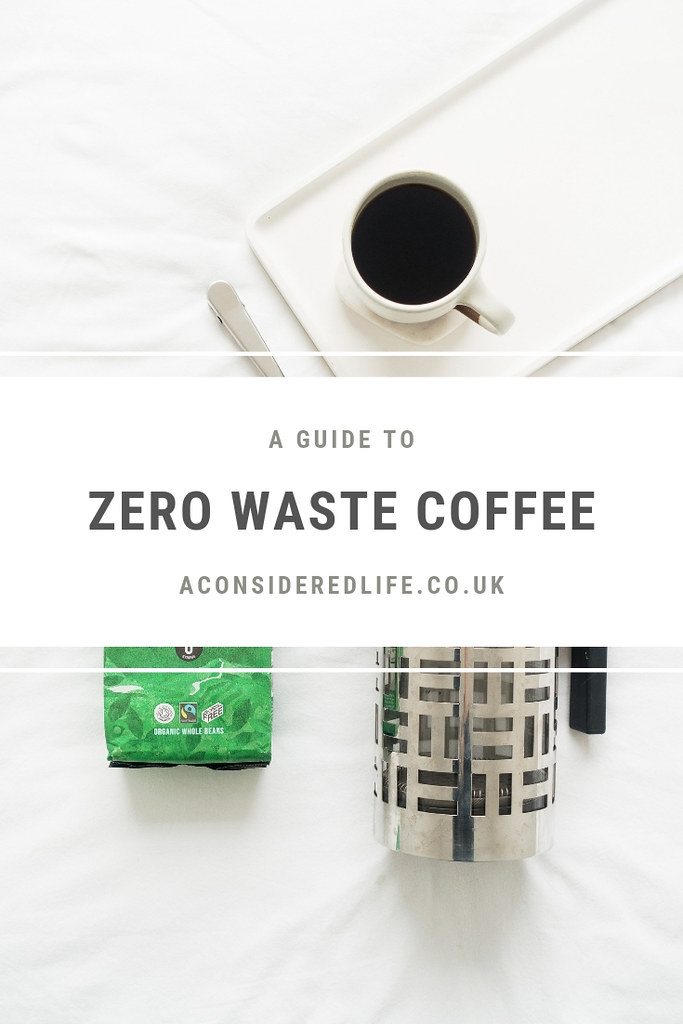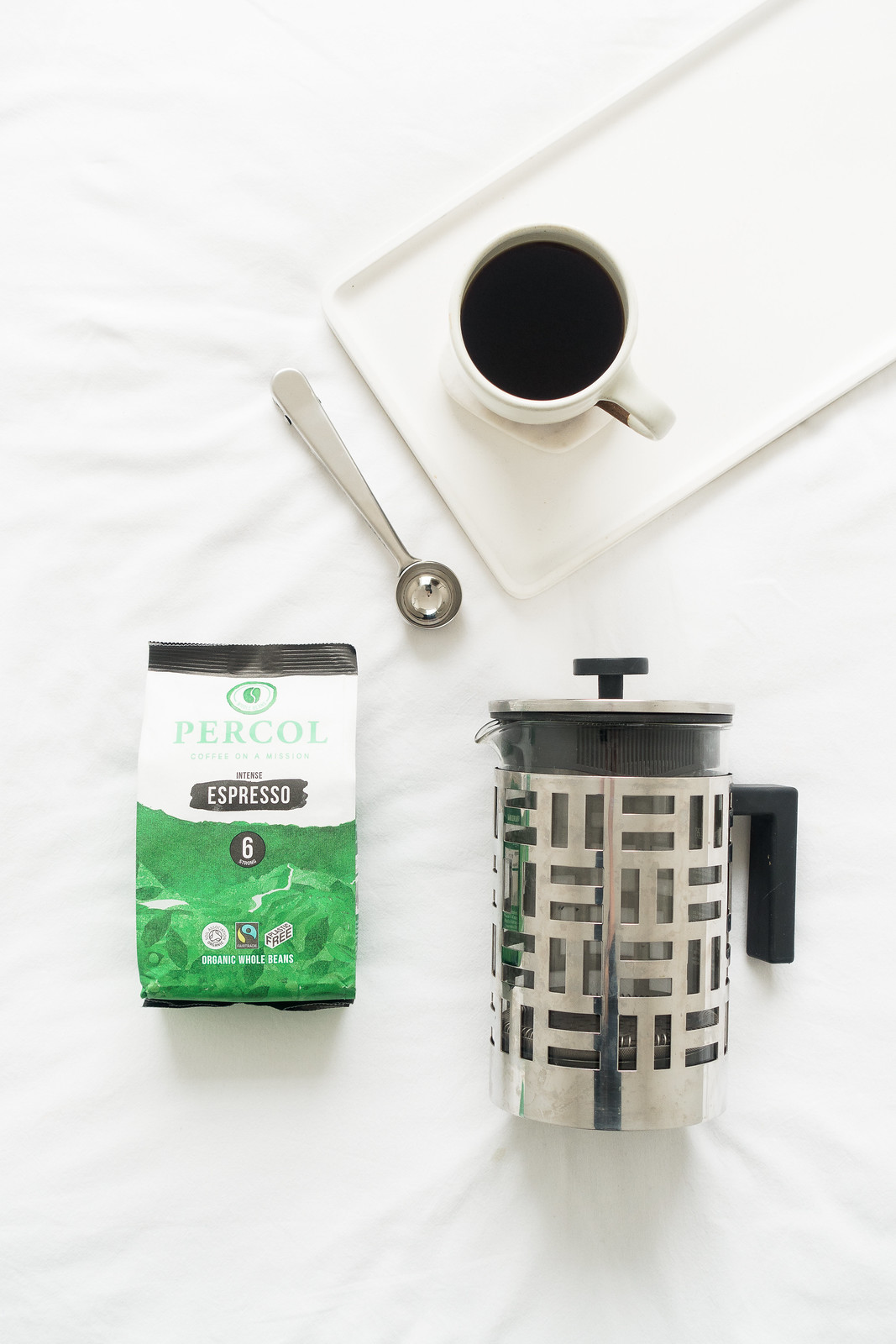
A simple daily switch we can make to reduce our waste is to adapt our coffee drinking habits. I'm not a huge coffee drinker; one cup a day is often my limit and I tend to stick to drinking tea. But that one cup a day is important and so I try to find the best, least wasteful way, of indulging in it. There are a few different ways you can adjust the waste your coffee drinking habits cause, from where you buy your beans to avoiding the disposable products used to brew them. This is a guide to drinking coffee the zero waste-friendly way.
Buying Coffee
Purchasing coffee to grind, brew, and drink at home can be done in a couple of ways ranging from zero waste to minimal waste. The issue I've run into when it comes to coffee is getting the balance right between taste, packaging, and cost.
The best option is to get your coffee fresh from a local roaster or from a local packaging-free store. Don't be shy; ask if you can bring your own container to sidestep packaging altogether. The next best option would be to buy coffee in packaging being mindful of what that packaging is made from. Unfortunately, no matter what the exterior packaging is made from - paper or plastic - most if not all coffee comes lined with foil that cannot be recycled. Separating the paper from the foil is virtually impossible and you're often left with the whole thing going to landfill.
It was a struggle to find but I have discovered coffee that is organically grown, Fairtrade certified, climate neutral, and packaged without plastic. Percol are the UK’s first coffee company to go plastic-free and one of the very few brands offering truly low waste coffee. The bag they package their coffee in is even home compostable. Percol ensures their beans are grown using eco-friendly practices and without chemical fertilizers; they pay their farmers a fair price, ensure decent working conditions, and provide adequate training; their company is even carbon-neutral certified. What's great is Percol's range of plastic-free coffee is readily available. You don't have to order online or visit niche shops, you can pick it up at your local supermarket. Waitrose, Sainsbury's, Co-Op, Tesco, Asda, and Morrisons all stock the coffee - if you local branch doesn't, ask them to!
You're not stuck with one or two options either. Percol have an entire range of plastic-free coffee including strong Espresso beans, bold Peruvian grounds, smooth Colombian coffee, a rich Americano blend, and they even have decaf coffee. We've made the switch in our home to Percol's espresso beans. The coffee is strong and tasty, and I appreciate that everything from the spent grounds to the packaging can be tossed into my compost bin with zero waste.
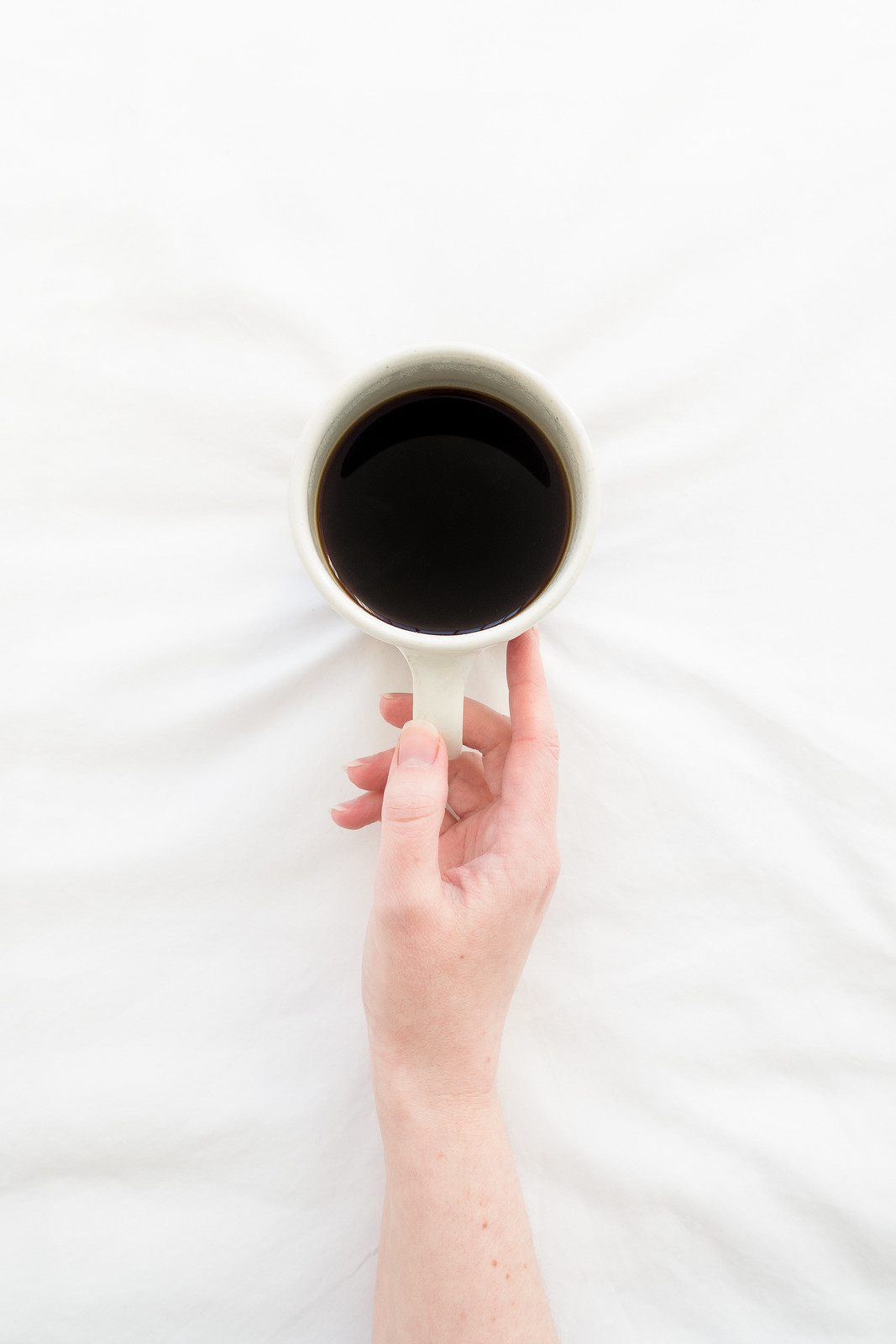
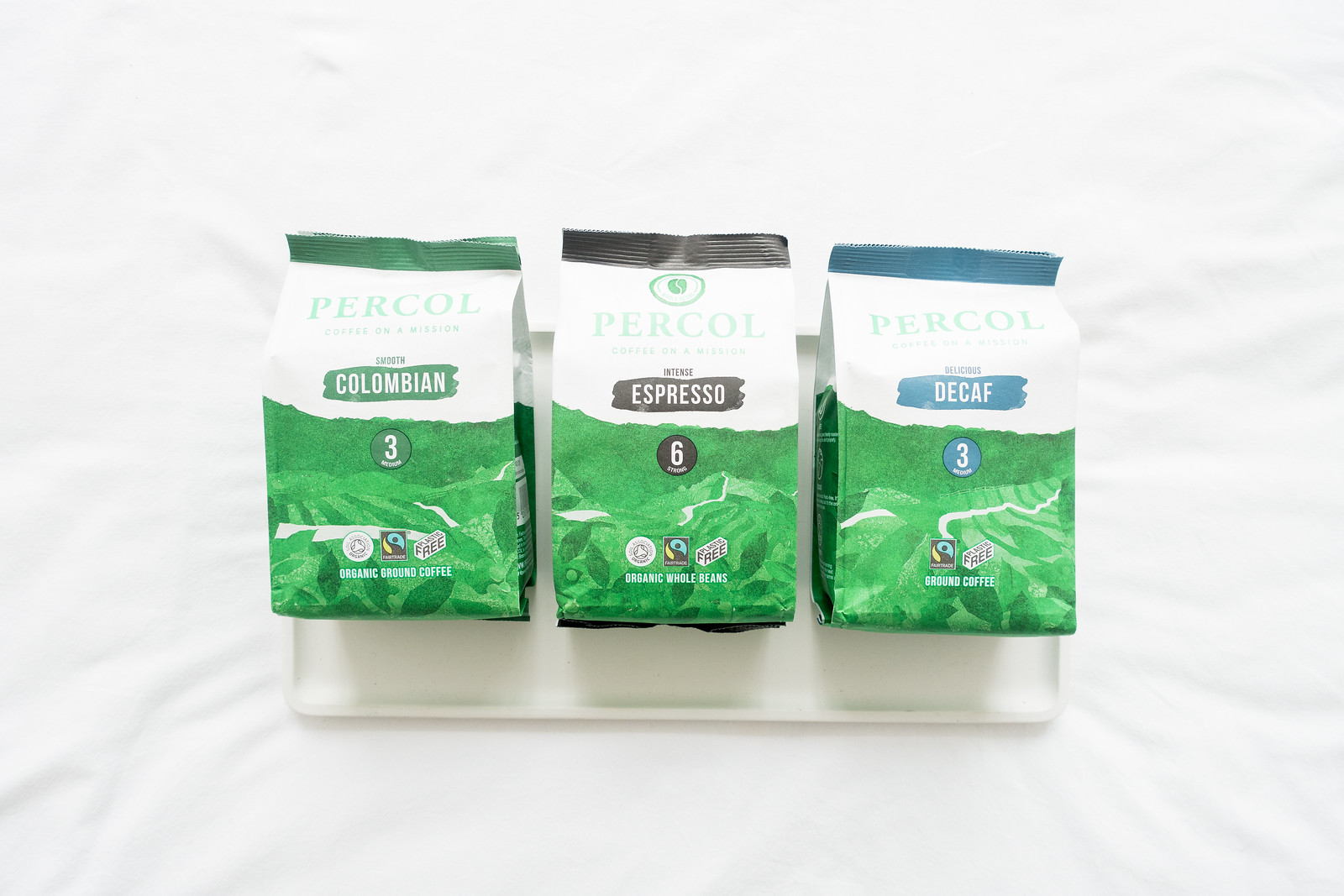
Storing Coffee
However you've purchased your coffee, you'll want to ensure it stays fresh for as long as possible. You'll want to protect it from air, moisture, heat, and light. The best option is to transfer the coffee to an opaque, air-tight container kept at room temperature; in a cupboard, out of sunlight. Keep it away from the heat of an oven, in a cool but not cold spot. If you have a storage canister, that's even better, and perhaps if you're an avid coffee drinker, investing in one might be a good idea.
Brewing Coffee
I drink one cup of coffee a day, first thing in the morning. I'm not someone who is fussy over coffee but I know people who are and how important the brewing process is to them. Coffee lovers all have their own preference for how the perfect cup of coffee should be brewed. Whether you opt for pour coffee, French press, AeroPress, or Italian stove top, this is how you can brew your coffee the low waste way.
I have an AeroPress, which is great for two people, any more and I break out the French press. I recently switched from using disposable paper filter to a metal one. If your coffee brewing method of choice involves a filter, use ones that can be composted or look for a reusable filter option instead. These metal coffee filters can be used in the AeroPress, pour over coffee filters are available too, and there's even an option for refillable capsules to use in coffee machines, if you have one. With a French press or Italian stove top, there is no disposable filter to deal with just the grounds. The spent grounds after brewing coffee can be composted, turned into a DIY exfoliating scrub, or used as a deodorizer around your home.
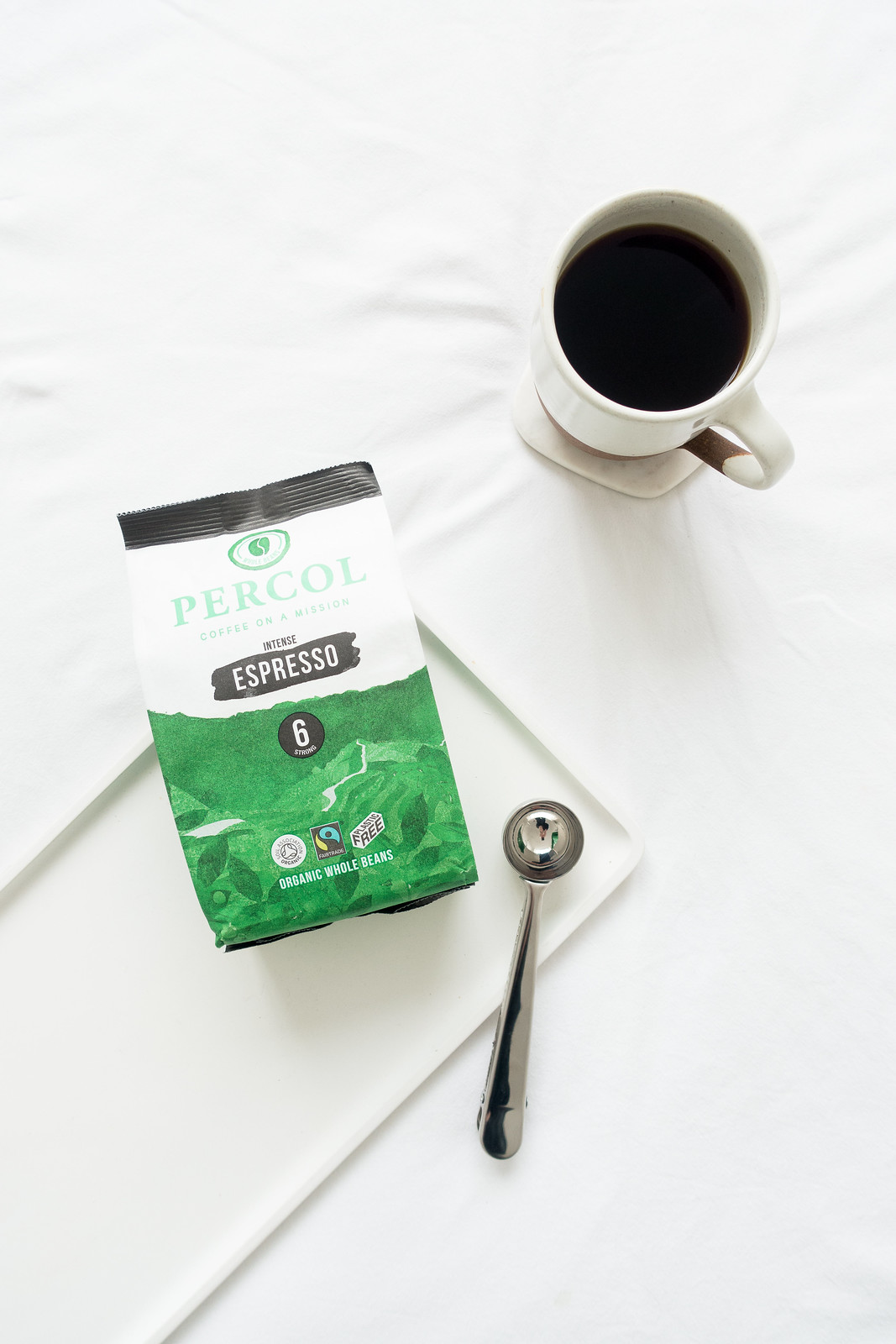
Adding Milk
I typically drink coffee black unless I'm having a second cup later in the day, then I'll opt for milk. The most sustainable milk to drink is from oats, which you can easily and quickly make at home. If you find plant milks curdle or separate in your hot coffee, try Oatly Barista Edition or the Minor Figures Oat Milk, both of which are designed for baristas and taste great. Whether you can recycle this packaging depends on your local recycling facilities so check before you buy.
Coffee On The Go
Whatever you do, avoid disposable coffee cups regardless of whether they are made from plastic or the "biodegradable" type that a lot of coffee shops are switching to. These slightly more eco-friendly cups are still ending up in landfill because they aren't being disposed of correctly. It's better to drink your coffee in the shop or bring your own reusable cup. I highly recommend an Ecoffee Cup for their durability and how lovely they feel to hold. A great option if you travel a lot is the collapsible Stojo cup with its space-saving design. There are plenty of reusable coffee cup options available, you could even find one second-hand. When ordering your coffee, don't forget to avoid single-use stirrers, sealed sugar packets, milk cartons, unnecessary napkins, and other disposable items offered to you at the checkout.
Pin This Post:
